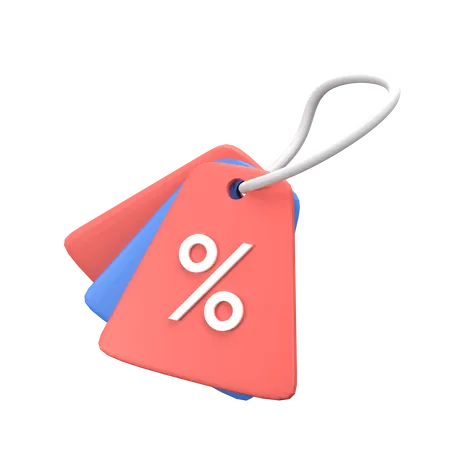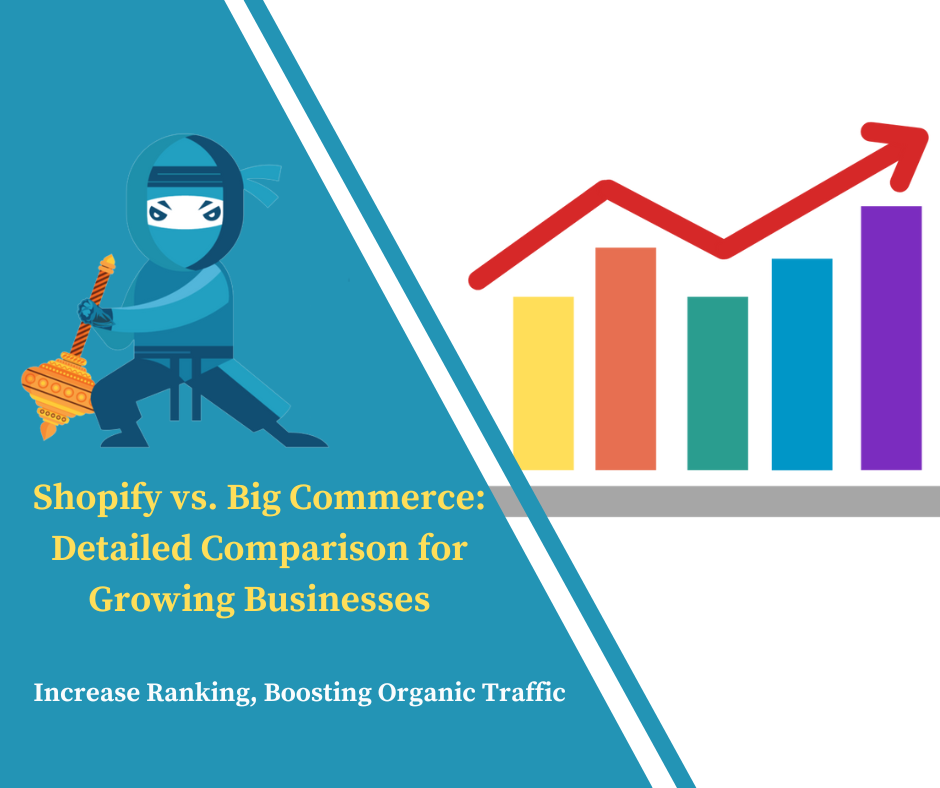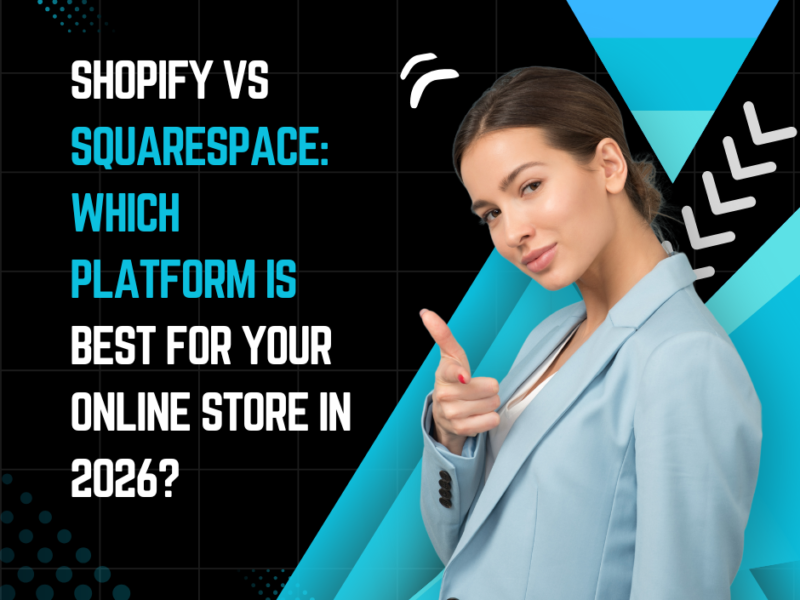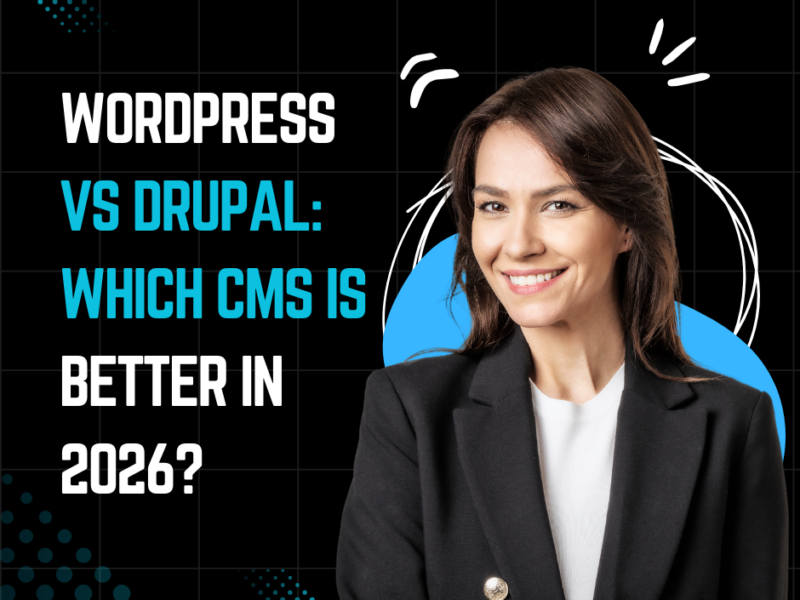Shopify vs. Big Commerce: Detailed Comparison for Growing Businesses
If you’re an entrepreneur looking to take your business online, choosing the right e-commerce platform is crucial. With so many options, it often comes down to two of the most popular: Shopify vs. Big Commerce. Both platforms are powerful, and each has unique strengths, but which is best for your growing business? In this detailed comparison of “Shopify vs. Big Commerce,” we’ll explore their features, pricing, ease of use, and more—so you can make the right choice for your needs.
Overview: Shopify vs. Big Commerce
Shopify is widely recognized as one of the most user-friendly e-commerce platforms, offering ease of use for both beginners and experienced merchants. Founded in 2006, Shopify has grown to become a trusted solution for over 1.7 million merchants worldwide, offering a wide range of customization options, integrations, and an intuitive interface.
Big Commerce, on the other hand, is known for its extensive feature set and flexibility. Founded in 2009, BigCommerce is designed to cater to businesses that are looking for scalability, with a strong focus on offering built-in functionalities that help merchants grow. The platform currently powers over 60,000 online stores and is highly regarded for its ability to handle large catalogs and offer deep customization.
Ease of Use: User Experience Matters
When it comes to ease of use, Shopify vs. Big Commerce presents some notable differences. Shopify is known for being extremely user-friendly, with an intuitive interface that makes building and managing an online store simple—even if you have zero technical skills. Shopify’s drag-and-drop editor allows you to customize your website easily, and its dashboard is clean and straightforward.
On the other hand, Big Commerce has a slightly steeper learning curve. While the platform does provide a lot of tools out of the box, the variety of options can be overwhelming, especially for beginners. However, if you’re comfortable with technology and enjoy having more control, Big Commerce’s flexibility could be an advantage.
Design and Customization
Both Shopify vs. Big Commerce offer a variety of themes to get your store up and running quickly. Shopify boasts over 80 professionally designed themes, most of which are modern, responsive, and customizable. However, many of the more attractive themes come at a cost, ranging from $150 to $350.
Big Commerce, on the other hand, provides a smaller selection of free themes, but each one is highly customizable. If you or your team has experience with HTML and CSS, you’ll appreciate Big Commerce’s Stencil framework, which allows for deep customization and branding.
When comparing “Shopify vs. Big Commerce” on design, Shopify may be the better option if you want a more polished look right out of the box, while BigCommerce offers more flexibility for those willing to get their hands a little dirty with coding.
Features and Functionality: What You Get Out of the Box
In terms of built-in features, Big Commerce has an edge over Shopify. Big Commerce comes with many advanced features that are included as standard, such as multi-channel selling (Amazon, eBay, social media integration), comprehensive SEO tools, and more flexible product options. This can be great for growing businesses that need advanced capabilities without having to rely on third-party apps.
Shopify, however, takes a different approach. Many of its features are available through apps from the Shopify App Store. While this does mean you have to pay extra for certain functions, it also allows you to choose only the features you need, keeping your website clean and simple.
Also read: Shopify vs. WooCommerce: Which E-Commerce Platform Is Best?
Pricing and Value for Money
The cost of using Shopify vs. Big Commerce is an important consideration, especially for growing businesses. Let’s break down the pricing:
Shopify offers three main plans:
- Basic Shopify: $39 per month
- Shopify: $105 per month
- Advanced Shopify: $399 per month
BigCommerce also provides three standard plans:
- Standard: $39 per month
- Plus: $105 per month
- Pro: $399 per month
- Enterprise: Custom pricing for high-volume businesses
Both platforms have similar price points, but they differ in what they offer. Big Commerce doesn’t charge transaction fees, regardless of the payment gateway you choose, which can be a significant saving for businesses with high sales volumes. Shopify, on the other hand, charges additional fees unless you use their in-house payment processor, Shopify Payments.
For businesses looking to scale quickly, Big Commerce’s transparent pricing and built-in features make it an attractive option. However, Shopify’s flexibility with third-party apps makes it suitable for businesses that want to control costs while adding features as needed.
Payment Gateways and Transaction Fees
When choosing between Shopify vs. Big Commerce, payment processing is an important factor. Shopify supports over 100 payment providers globally, including PayPal, Stripe, and more. However, unless you use Shopify Payments, you’ll be charged a transaction fee on each sale (ranging from 2% to 0.5%, depending on your plan).
BigCommerce integrates with over 65 payment gateways and doesn’t charge any transaction fees, regardless of which provider you use. This is a major benefit for businesses wanting the freedom to use a gateway that suits them without incurring additional costs.
Also read: Magento vs. Shopify: Which E-Commerce Solution Fits You?
SEO and Marketing Tools
Shopify vs. Big Commerce is a close call when it comes to SEO and marketing capabilities. Both platforms offer essential SEO features, such as customizable meta titles and descriptions, responsive designs, and sitemap generation.
However, Big Commerce provides more out-of-the-box SEO functionality, including advanced URL customization, faceted search capabilities, and automated image optimization. Shopify also supports these features but relies heavily on apps for advanced SEO tools. For example, adding structured data may require third-party plugins in Shopify, whereas Big Commerce offers more flexibility natively.
When it comes to marketing, Shopify has a slight advantage because of its powerful integration with email marketing and social media platforms through its app store. Shopify’s abandoned cart recovery feature is also included with its basic plan, which can significantly boost conversion rates for growing businesses.
Scalability for Growing Businesses
Scalability is another critical aspect of the Shopify vs. Big Commerce comparison, particularly for businesses looking to grow rapidly.
Shopify is known for its scalability. Its large app ecosystem allows businesses to add new features and capabilities as they grow, and its infrastructure is built to handle increasing traffic and sales. Shopify also offers a dedicated Shopify Plus plan for enterprise-level businesses, providing more advanced features and dedicated support.
BigCommerce also scales well, especially for businesses that need more advanced features from day one. Its robust API allows developers to create custom integrations, and the platform’s built-in functionalities make it easy to grow without relying on third-party apps. Big Commerce’s Enterprise plan offers advanced tools for high-volume sellers, ensuring businesses can continue to grow without technical limitations.
Customer Support: Who’s Got Your Back?
When you’re running an online store, having reliable customer support is essential. Shopify offers 24/7 support via live chat, phone, and email, as well as an extensive knowledge base and a vibrant community forum where users can ask questions and share experiences.
BigCommerce also provides 24/7 support, with additional onboarding services for users on higher-tier plans. BigCommerce’s help center is comprehensive, and they offer one-on-one onboarding consultations for new customers, which can be particularly helpful if you’re just getting started.
Which Platform Is Best for Growing Businesses?
The decision between Shopify vs. Big Commerce depends on your business’s specific needs:
If you’re looking for an easy-to-use platform with a ton of third-party integrations, Shopify is likely the better option. It’s perfect for startups and small businesses that want to focus on growing without getting bogged down by complex features.
If your business needs advanced built-in functionalities and you want to avoid relying too much on third-party apps, Big Commerce may be the way to go. It’s ideal for larger or fast-growing businesses that require powerful tools right out of the box.
FAQs
Which is better for small businesses, Shopify or BigCommerce?
Shopify is often a better choice for small businesses because of its ease of use and flexible app integrations. It allows small businesses to start simple and add features as needed.
Does BigCommerce charge transaction fees?
No, Big Commerce does not charge any transaction fees, regardless of the payment gateway you use. This makes it more cost-effective for businesses with high sales volumes compared to Shopify, which charges fees unless you use Shopify Payments.
Is Shopify easier to use than BigCommerce?
Yes, Shopify is generally easier to use than Big Commerce. Its drag-and-drop builder and user-friendly dashboard make it accessible for beginners, while BigCommerce may require a bit more technical knowledge.
Which platform is better for SEO?
Big Commerce offers more built-in SEO tools compared to Shopify, which relies more on third-party apps for advanced SEO functionalities. If SEO is a major focus for your business, BigCommerce might be a better fit.
Can I customize my store’s design on both platforms?
Yes, both Shopify and BigCommerce offer customization options. Shopify provides easy-to-use themes that can be customized with their editor, while Big Commerce offers more in-depth customization through HTML and CSS.
Which platform is more scalable for a growing business?
Both platforms are scalable, but Shopify offers greater flexibility with its large app store, while Big Commerce offers robust built-in features that may be more appealing.
Hire Shopify App Developers
Conclusion
Choosing between Shopify vs. Big Commerce requires careful consideration of your business’s current needs and future goals. If you want a user-friendly platform with an extensive app store, Shopify is the way to go. On the other hand, if you want powerful built-in features and no transaction fees, Big Commerce might be the better choice.
Both platforms have their strengths, so weigh your priorities and decide which option best aligns with your business’s long-term growth strategy.








